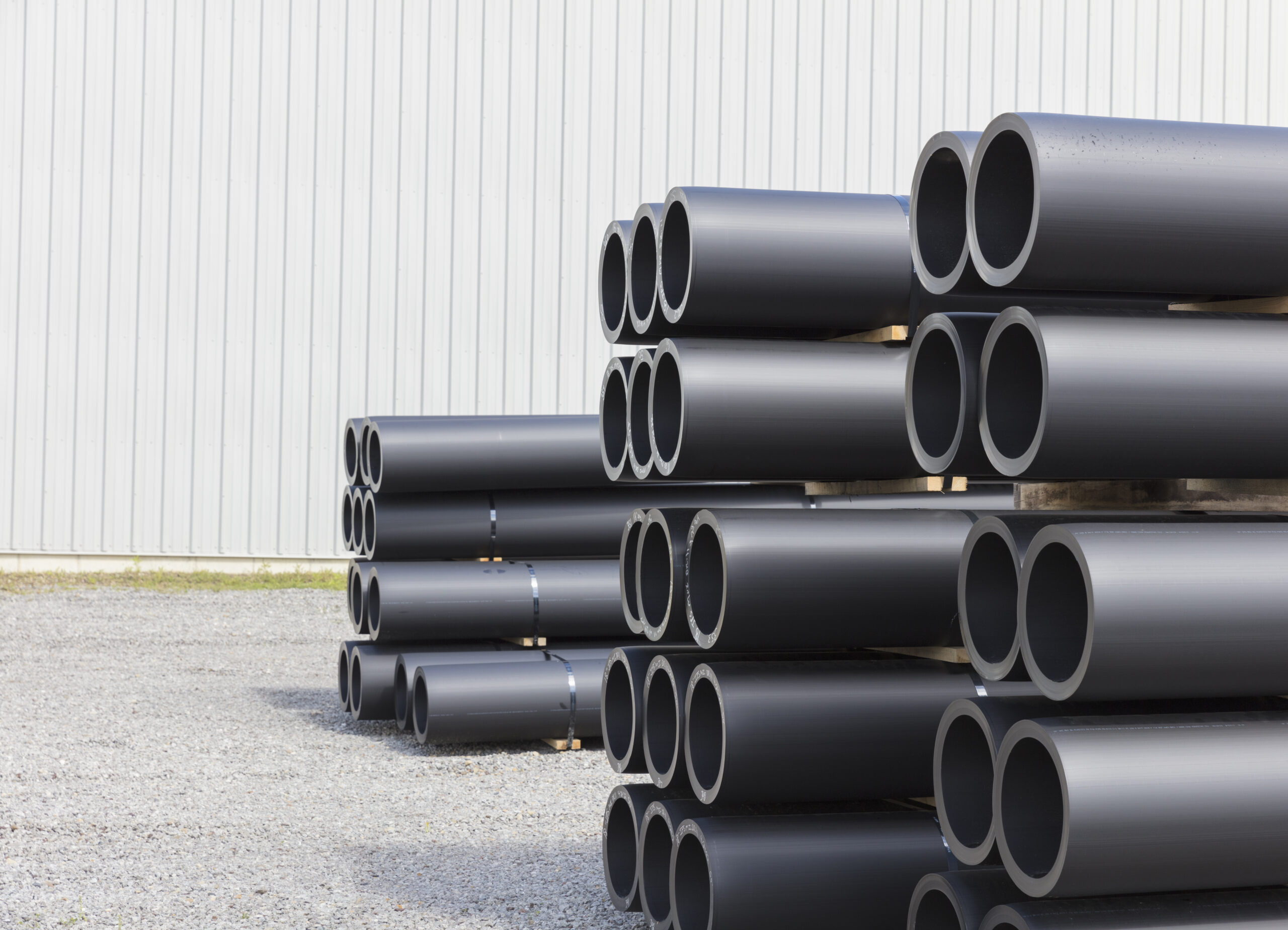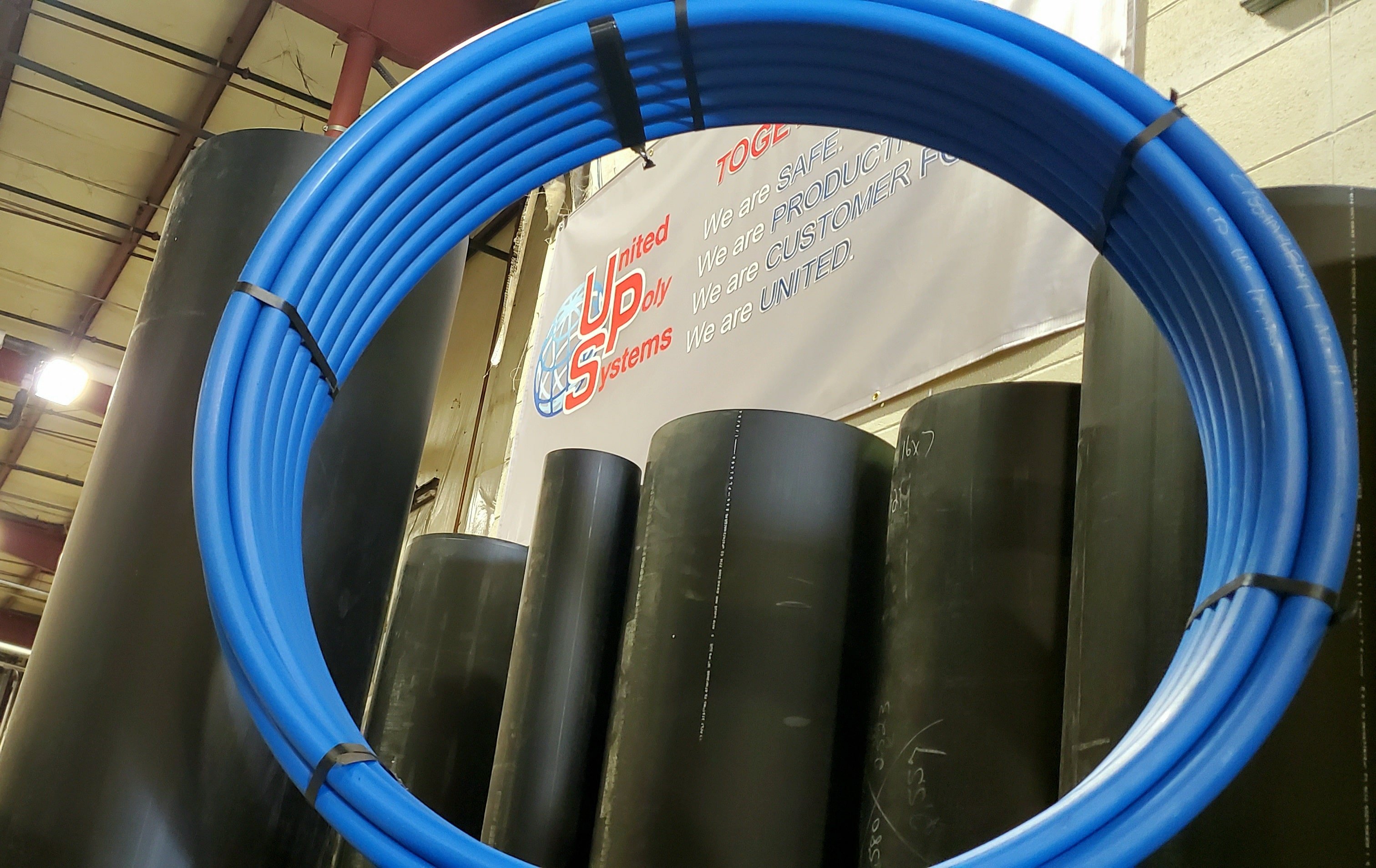Practical Overview to hdpe pipe fittings Midland TX and Their Uses
Comprehending the Key Conveniences of HDPE Pipe for Water and Wastewater Monitoring
The use of HDPE pipe in water and wastewater administration offers many benefits that merit consideration. Its outstanding resilience and long life expectancy make it a recommended selection for lots of jobs. Additionally, the product's resistance to deterioration and chemical damages improves its dependability in different environments. Nonetheless, the benefits prolong beyond just long life and resistance. Discovering its cost-effectiveness and ecological effect reveals a lot more engaging reasons for its prevalent fostering in contemporary infrastructure
Phenomenal Sturdiness and Longevity

HDPE pipeline sticks out for its outstanding durability and longevity, making it a preferred option in water administration systems. Constructed from high-density polyethylene, these pipes can endure significant pressure and stress, guaranteeing trustworthy performance in time. Their robust nature permits them to endure extreme ecological conditions, including temperature level changes and soil motions, which can create other materials to fall short.
The lifespan of HDPE pipes usually goes beyond 50 years, supplying a cost-efficient service for districts and markets alike. In addition, the material's lightweight residential properties simplify installment, reducing labor costs and timeframes. This toughness reduces the demand for constant repair services or replacements, further boosting its financial charm.
In water monitoring applications, the dependability of HDPE pipelines indicates fewer interruptions and improved service connection, making them important to sustainable framework growth. The combination of longevity and longevity strengthens HDPE's role as a keystone in effective water administration options.

Resistance to Rust and Chemical Damage
While many materials catch corrosion and chemical damage with time, HDPE pipes show exceptional resistance, making them excellent for various water monitoring applications. This strength stems from the molecular framework of high-density polyethylene, which is inherently non-reactive and does not rust like steels or weaken from exposure to extreme chemicals. Therefore, HDPE is extremely efficient in environments with hostile substances, such as wastewater systems that might consist of acids, bases, and organic solvents.
Additionally, HDPE pipes can endure environmental aspects such as dirt level of acidity and saline conditions, even more enhancing their viability for diverse applications (Pipe Manufacturing Midland TX). Their capability to preserve architectural honesty with time reduces the risk of leakages and failings, which is vital in making certain the security and reliability of water distribution and wastewater monitoring systems. The resistance to corrosion and chemical damages substantially contributes to the overall performance and long life of HDPE piping services.
Cost-Effectiveness and Financial Advantages
When considering the monetary ramifications of water monitoring systems, the cost-effectiveness of HDPE pipelines becomes apparent. These pipelines use lower setup and maintenance costs compared to standard materials like metal or concrete. Their lightweight nature streamlines transportation and installation, resulting in decreased labor costs. Additionally, HDPE pipes display a long life expectancy, typically going beyond 50 years, which converts to fewer substitutes and long-term savings.
Furthermore, the resistance of HDPE to corrosion and chemical damages minimizes the requirement for costly repairs and replacements. The pipes additionally support effective water flow, decreasing power costs linked with pumping systems. By alleviating leakages and water loss, HDPE pipelines add to significant financial advantages for communities and markets alike. Generally, the initial financial investment in HDPE piping can produce significant financial returns over the life expectancy of the water administration system, making it a sensible option for sustainable facilities growth.
Environmental Sustainability and Decreased Effect

Convenience and Adaptability in Setup
Since of their special residential properties, HDPE pipes provide exceptional versatility and flexibility in setup, making them suitable for a vast array of applications. Their light-weight nature enables simpler handling and transportation, decreasing labor prices and setup time. HDPE pipes can be bent and formed to fit numerous terrains and job needs, which is especially advantageous in challenging atmospheres.
Furthermore, their resistance to rust and chemical damage enables installment in diverse setups without the demand for specialized protective coatings. The capacity to fuse joints creates a continual, leak-free system, improving the total honesty and integrity of the installation. HDPE's versatility also suits ground activity, reducing the danger of damages in areas prone to changing soil. Overall, these characteristics make HDPE pipelines not only flexible but likewise a preferred option for water and wastewater management systems.
Often Asked Concerns
Exactly How Does HDPE Pipeline Contrast to PVC in Water Monitoring Applications?
HDPE pipeline offers superior versatility, resistance to rust, and longevity compared to PVC. Its lighter weight helps with simpler setup, while its long lifespan reduces substitute expenses, making HDPE a favored option in water monitoring applications.
What Is the Life Expectancy of HDPE Pipes Under Regular Problems?
Under normal problems, HDPE pipes can have a life expectancy ranging from 50 to 100 years. Their sturdiness and resistance to deterioration contribute to their long-lasting efficiency in various applications, making them a dependable choice for infrastructure.
Are HDPE Water Lines Recyclable After Their Life Span?
Yes, HDPE pipes are recyclable after their life span. Pipe Supplier American Plastics Midland. They can be processed and repurposed into brand-new items, considerably lowering Click Here environmental impact and advertising sustainability within the sector, making them an eco-friendly option for piping services
What Is the Setup Process for HDPE Pipeline?
The installation process for HDPE pipelines involves website preparation, trenching, pipe fusion or mechanical signing up with, backfilling, and stress testing. Correct strategies ensure a resilient and effective system for delivering water and wastewater properly.
Can HDPE Water Lines Be Made Use Of for Both Drinkable and Non-Potable Water Solutions?
Yes, HDPE pipelines can be used for both drinkable and non-potable water supply. Their adaptability, sturdiness, and resistance to deterioration make them suitable for numerous applications, making sure risk-free and efficient transport of water in various contexts.